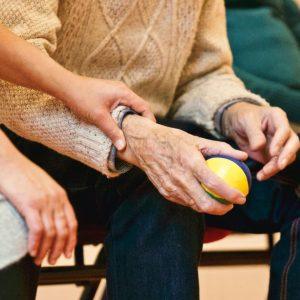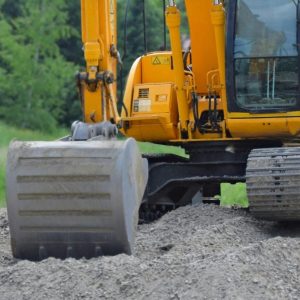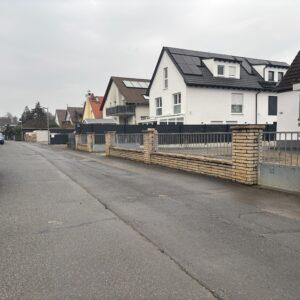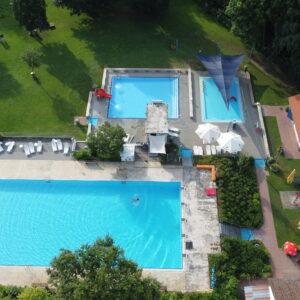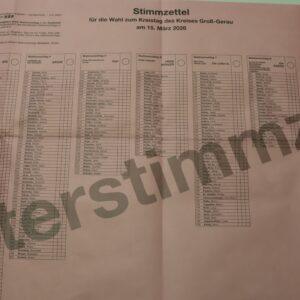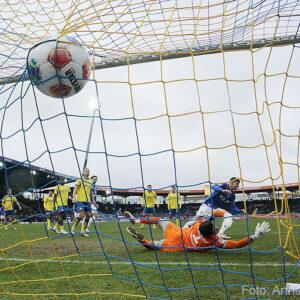ADVERTISING
Interim report on African swine fever in the Groß-Gerau district
Seven months of African swine fever (ASF) in the Groß-Gerau district: This was the external reason for the district administration to provide the public with a concentrated dose of information on the current state of affairs regarding ASF.
At the press conference held for this purpose, First County Councillor Adil Oyan, Dr. Katrin Stein from the Veterinary Office, Head of the Legal Department Sven Dude, and Head of Disaster Control Friedrich Schmidt presented an interim report on behalf of the district. Klaus Velbecker from HessenForst, Markus Stifter from the Hessian Hunting Association, and Wolfgang Dörr from the Starkenburg Regional Farmers' Association also provided information.
The toll since the outbreak of African swine fever (ASF), which only affects pigs, includes the following: 289 wild boar carcasses (as of January 17, 2025) have been registered as ASF-positive in the Groß-Gerau district since last June. In July and on August 1, 3,581 domestic pigs and 43 wild boar in enclosures had to be culled on a total of eight farms because the herds were infected with African swine fever. Currently, 22 pigs are kept as pets and 674 as livestock in the district; 29 wild boar live in enclosures.
It remains unclear why several pig farms were affected by African swine fever (ASF) in such quick succession last summer, despite adhering to biosecurity measures. The Friedrich Loeffler Institute is still analyzing the samples, said Adil Oyan. This analysis also includes the question of whether mosquitoes can transmit the virus.

The crisis management received praise from all sides. "The administration reacted very well and quickly when the first case of African swine fever (ASF) was reported here," said the First Deputy District Administrator. Cooperation with the state government was and remains harmonious. Communication with agriculture, hunting, and forestry was quickly established on a solid footing through regular meetings within the administrative task force. Klaus Velbecker spoke of "excellent cooperation and coordination" – both regarding the fencing coordinated by the state government and the search for and recovery of carcasses.
“We’ve known for a long time that the Rhine-Main region is a high-risk area for African swine fever,” said Markus Stifter. That’s why the hunting community wasn’t paralyzed with shock when the disease broke out. There was widespread understanding of the necessary measures to contain the disease. And there was also a willingness to help: drones, originally purchased for searching for fawns, were now being used to report that fields ready for harvest were free of wild boar.
“We need patience,” said the spokesperson for the Hessian Hunting Association. The hunting ban in the ASF core area can only be eased once all the planned permanent fences are in place, preventing stray animals from spreading the highly contagious and very stable virus during hunts. The public can also help achieve this goal. Stifter appealed to everyone to adhere to the rules: for example, keeping dogs on a leash in the forest and disposing of trash in closed containers instead of simply throwing it away.
Wolfgang Dörr once again described the severe burden – both psychological and financial – placed on farmers affected by African swine fever (ASF), especially pig farmers, but also arable farmers. He thanked everyone who is helping to keep ASF "under control." Initially, there were no established procedures, but this was quickly improved. Like hunters, farmers will now have to live with the consequences of ASF for a long time to come. "If we want to continue to have regional agriculture, then politicians must help," he emphasized.
“After seven months, we are no longer chasing after the disease, but can work proactively,” emphasized Dr. Katrin Stein. Even though the issue is no longer as prominent in the public eye, there is much to be done behind the scenes: As of March 1st, the district will largely assume responsibility for fence construction, and will also be responsible for organizing carcass searches and training the search dogs. The drone search procedure is to be simplified. Compensation for wildlife damage is well advanced. Furthermore, the application for EU co-financing of ASF costs is currently underway.
Dr. Stein and Friedrich Schmidt emphasized that the Groß-Gerau district benefited from thorough preparation in managing the epidemic and its consequences, a situation expected to last for years. "We had already drawn up an animal disease response plan with the veterinary office – and also conducted several exercises," they explained. This proved invaluable when African swine fever (ASF) actually arrived in the district. Schmidt also praised the cooperation with the state government, which provided assistance in procuring supplies.
The disaster control unit, supported by volunteers, set up the first carcass collection point with a decontamination station and assembled the decontamination stations for each cull. They are now in the process of establishing a weatherproof central facility in the district, offering storage areas, an office, a dog shower, and a decontamination station for vehicles.
The legal basis for many measures is provided by the general decrees (AV) issued by the district. Here, too, the state provided assistance with model AVs, which were adapted to the district's specific needs in consultation with the district. "We know that everything is always associated with regulations and restrictions," said Sven Dude. Therefore, many exceptions are used – be it for hunting, agriculture, or regulations governing leisure activities. While the rules were initially very general, they are now much more differentiated to avoid unnecessarily complicating life: "We are striking a balance between the goal of containing African swine fever and the desire to impose as few restrictions as possible."
(District of Gross-Gerau – PSGG)
They provided information at the press conference on the topic of African swine fever (from left): Sven Dude, Friedrich Schmidt, Dr. Katrin Stein, Adil Oyan, Klaus Velbecker, Markus Stifter and Wolfgang Dörr. Photo: District Administration

